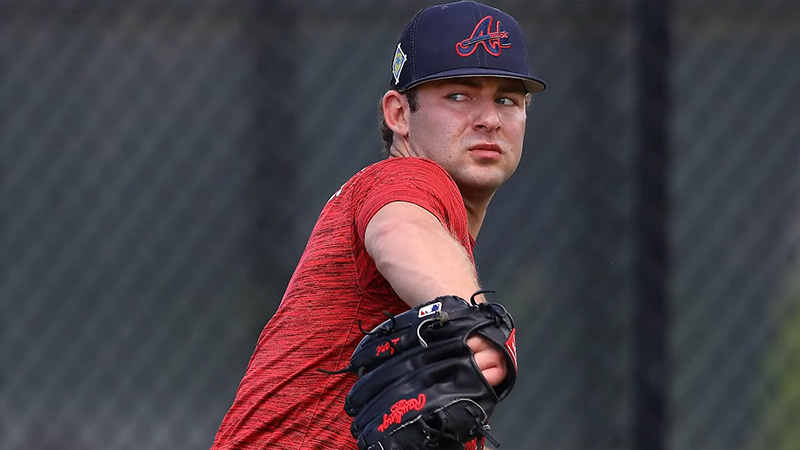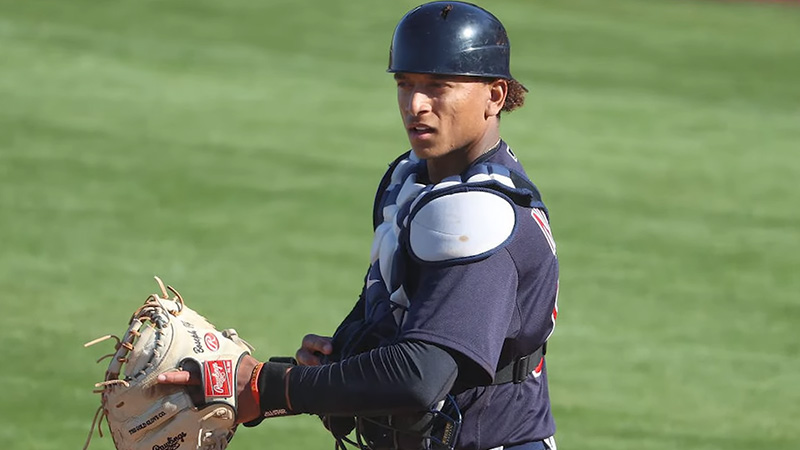Baseball, often referred to as America’s pastime, has a rich history and a complex set of rules governing its various aspects. One crucial aspect of the sport is the eligibility of players to be considered rookies.
In this article, we delve into the intricacies of baseball rookie eligibility rules, shedding light on their significance, history, and their implementation in Major League Baseball (MLB).
So, if you are looking for a way to learn about this significant rule of baseball, please join us to learn it in depth.
What Is The Baseball Rookie Eligibility Rules?
Baseball rookie eligibility rules are designed to maintain fairness and provide opportunities for young, talented players to showcase their skills in the major leagues.
These rules dictate the conditions under which a player is considered a rookie and, consequently, eligible for accolades such as the Rookie of the Year award.
Explanation of the Rule
To understand the baseball rookie eligibility rules more comprehensively, let’s delve into the details of each criterion. The first criterion states that a player must have accumulated fewer than 130 at-bats or pitched fewer than 50 innings in MLB games during a previous season.
This criterion ensures that players who have had limited exposure to major league competition can still be considered rookies in subsequent seasons, allowing them to compete for Rookie of the Year honors.
The second criterion focuses on the player’s service time on an active MLB roster. Specifically, a player must have never exceeded 45 days of service on an active MLB roster during the 25-player limit period.
This criterion takes into account the number of days a player spends on the roster throughout the season, regardless of whether they are actively playing or not.
It prevents players who have been on the roster for an extended period from being eligible for rookie status, as it suggests they have already gained a level of experience beyond what is expected of a rookie.
Situations where Baseball Rookie Eligibility Rules Apply
The baseball rookie eligibility rules come into play in several significant situations within the sport. One primary situation is when a player is called up from the minor leagues to join a major league team.
Upon their arrival, the player’s rookie status is determined by assessing whether they meet the specific criteria outlined in the eligibility rules. This determination allows teams and fans to recognize and celebrate the debut of promising young talent in the major leagues.
Another situation where the rookie eligibility rules apply is when a player has been injured and subsequently placed on the injured list. If a player spends a significant amount of time on the injured list but still meets the rookie eligibility criteria, they can maintain their rookie status.
This provision ensures that players who have experienced setbacks due to injuries are not unfairly penalized and still have the opportunity to compete for Rookie of the Year honors when they return to active play.
Furthermore, the rookie eligibility rules are crucial during the selection process for the prestigious Rookie of the Year award.
The award is presented annually to the most outstanding rookie player in each league, and candidates for the award must meet the criteria outlined in the rookie eligibility rules.
The rules provide a standardized framework for evaluating and comparing the performances of rookies, allowing for fair and unbiased assessments in the voting process conducted by the Baseball Writers’ Association of America (BBWAA).
By applying the rookie eligibility rules in these situations, baseball ensures fairness, transparency, and equal opportunities for young players to make their mark in the major leagues.
These rules help maintain the integrity of the game and showcase the talents of rookies, who often bring excitement and fresh perspectives to the sport.
Baseball Rookie Eligibility Rules in MLB

In Major League Baseball (MLB), the rookie eligibility rules play a pivotal role in determining the recognition and awards a player can receive. The rules are administered and enforced by the MLB and its governing bodies, including the Commissioner’s Office.
These regulations aim to ensure fair competition and provide equal opportunities for rookies to make their mark in the league.
One significant aspect of the rookie eligibility rules in MLB is the determination of a player’s rookie status. As mentioned earlier, a player must meet specific criteria regarding at-bats, innings pitched, and days of service on the active roster to be considered a rookie.
This designation holds importance as it opens doors for players to contend for prestigious awards such as the Rookie of the Year.
The Rookie of the Year award is a highly coveted honor bestowed upon the most outstanding rookie in each league. The award has a long-standing tradition and is presented annually by the Baseball Writers’ Association of America (BBWAA).
The voting process involves sportswriters from each league who cast their ballots based on a player’s overall performance, impact, and contributions during their rookie season.
Players who qualify as rookies in MLB have the opportunity to leave a lasting impression on fans, scouts, and team management. Many rookies have gone on to have illustrious careers, with their rookie seasons often serving as a springboard to future success.
The rookie eligibility rules ensure that these promising talents receive the recognition they deserve and provide a platform for their development and growth within the league.
Penalties Against the Baseball Rookie Eligibility Rules
To maintain the integrity of the game and enforce compliance with the rookie eligibility rules, penalties can be imposed on teams and individuals who violate these regulations. The severity of the penalties can vary depending on the nature and extent of the violation.
One common penalty is the imposition of fines on teams found guilty of intentionally manipulating a player’s rookie status or violating the rookie eligibility rules. These fines serve as a deterrent and discourage teams from engaging in practices that undermine the integrity of the game.
In more severe cases, teams may face suspensions or restrictions on their ability to sign or acquire players. Such penalties can have a significant impact on a team’s competitive prospects, potentially hampering their ability to build a strong roster and compete effectively.
Additionally, violations of the rookie eligibility rules can result in the loss of draft picks for a team. Draft picks are highly valuable assets in baseball, and the loss of these picks can impede a team’s ability to replenish its talent pool and hinder its long-term success.
The penalties against the rookie eligibility rules underscore the MLB’s commitment to maintaining fair play, promoting equal opportunities for all players, and preventing any attempts to manipulate or exploit the system for unfair advantages.
By enforcing penalties, the league sends a clear message that adherence to the rules is of utmost importance and that any violations will be met with appropriate consequences.
Significance of the Baseball Rookie Eligibility Rules

The baseball rookie eligibility rules hold significant importance within the sport. They are designed to foster fair competition, providing young and talented players with the opportunity to showcase their skills at the highest level. By establishing clear criteria for rookie status, these rules create a level playing field for all aspiring players.
One of the primary benefits of the rookie eligibility rules is the recognition they bring to young players who excel in their debut seasons. Being designated as a rookie opens doors to prestigious accolades, such as the Rookie of the Year award.
This recognition not only rewards individual talent but also serves as a stepping stone to a player’s future career prospects. It can enhance their marketability, attract sponsorship opportunities, and pave the way for further success in the sport.
Moreover, the rookie eligibility rules contribute to the overall integrity and transparency of the game. They prevent teams from exploiting talented prospects prematurely and ensure that players are given adequate time to develop their skills in the minor leagues before being thrust into the highly competitive environment of the major leagues.
Additionally, the rookie eligibility rules promote a sense of excitement and anticipation among fans. Baseball enthusiasts eagerly await the arrival of highly touted rookies, as they often bring a fresh perspective and youthful energy to the game.
The rookie designation adds an extra layer of intrigue to a player’s debut season, creating buzz and fanfare around their performance.
History of Baseball Rookie Eligibility Rules
The history of baseball rookie eligibility rules can be traced back to the early days of the sport. In the early 20th century, there were no formal rules governing rookie eligibility.
However, as the game grew in popularity and professionalism, the need for standardized guidelines became apparent.
In 1947, Major League Baseball (MLB) established the modern definition of a rookie and the criteria for rookie eligibility. This was a significant step towards maintaining fairness and consistency in recognizing the contributions of young players.
Over the years, the criteria have been refined and adapted to reflect the changing landscape of the game.
The rookie eligibility rules have witnessed several notable moments in baseball history. Players such as Jackie Robinson, the first African American to break the color barrier, and Fernando Valenzuela, a trailblazer for Latin American players, captivated fans and made significant impacts as rookies.
The rules have also evolved to accommodate unique circumstances. For example, players who have been on the injured list for an extended period may maintain their rookie status if they meet the specified criteria.
This ensures that talented players who suffer from injuries early in their careers still have the opportunity to compete for Rookie of the Year honors when they return to the field.
In recent years, the rookie eligibility rules have garnered increased attention and analysis. With advancements in analytics and statistical analysis, there has been a deeper examination of the impact of these rules on player evaluations and team strategies.
FAQs
How long can a player maintain their rookie status?
A player retains their rookie status until they exceed the specified criteria, namely accumulating more than 130 at-bats or pitching more than 50 innings, or exceeding 45 days of service on an active MLB roster.
Can a player be considered a rookie in multiple seasons?
No, a player can only be considered a rookie for one season in their career. Once they exceed the criteria outlined in the rookie eligibility rules, they are no longer eligible for the rookie designation.
Are there any exceptions to the rookie eligibility rules?
Yes, there are certain exceptions to the rookie eligibility rules. For example, players who have been on the injured list for an extended period may maintain their rookie status if they meet the specified criteria.
Can a player win the Rookie of the Year award in multiple seasons?
No, a player can only win the Rookie of the Year award once in their career. Once a player has received the award, they are no longer eligible for subsequent Rookie of the Year honors.
How are the Rookie of the Year winners determined?
The winners of the Rookie of the Year award are determined through a voting process conducted by the Baseball Writers’ Association of America (BBWAA). Sportswriters from each league cast their votes based on a player’s overall performance and impact during their rookie season.
Bottom Line
Baseball rookie eligibility rules are a fundamental component of the sport, ensuring fair competition and recognizing the achievements of young talent. These rules establish criteria that determine a player’s rookie status, eligibility for awards, and penalties for non-compliance.
Understanding the history, significance, and application of these rules allows fans and enthusiasts to appreciate the careful balance between providing opportunities for rookies while maintaining the integrity of the game.
As baseball continues to evolve, so too will the rookie eligibility rules, adapting to the ever-changing landscape of the sport while upholding its core values.







